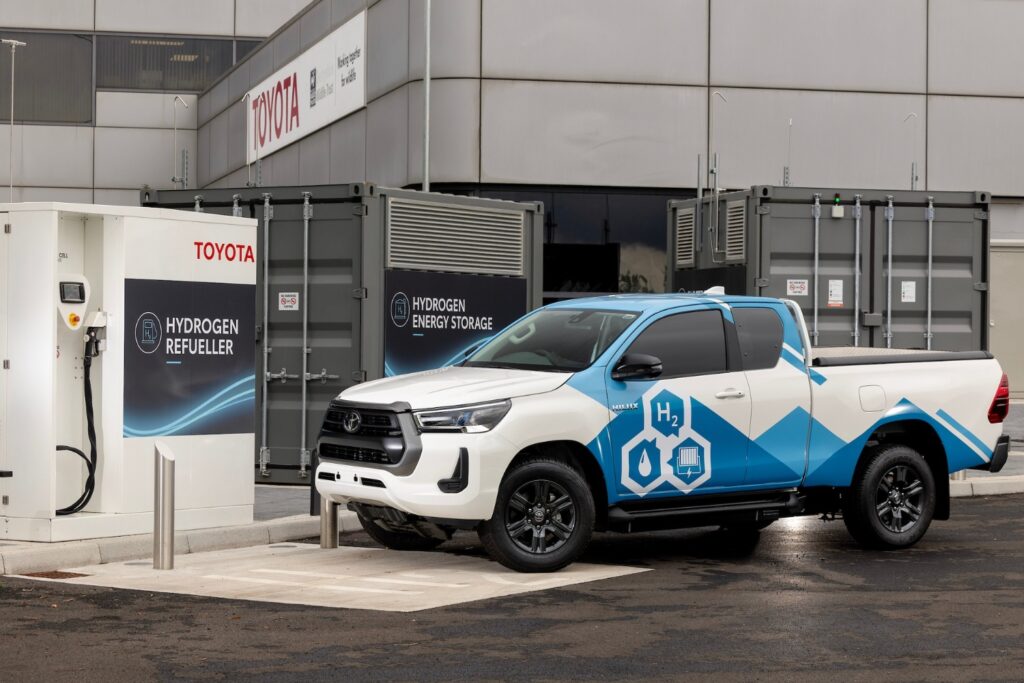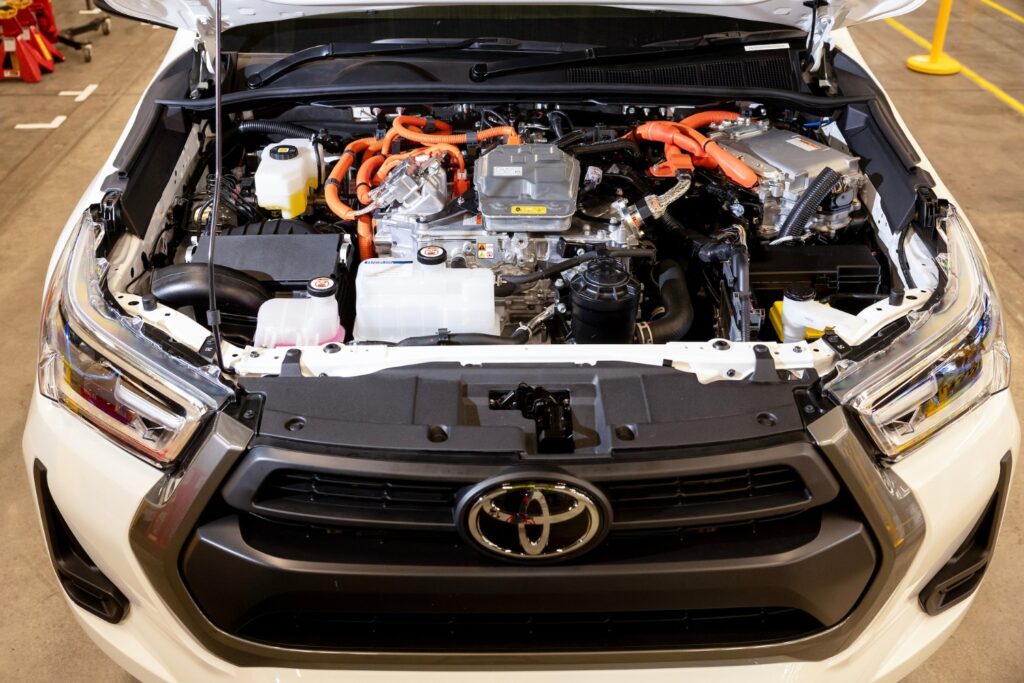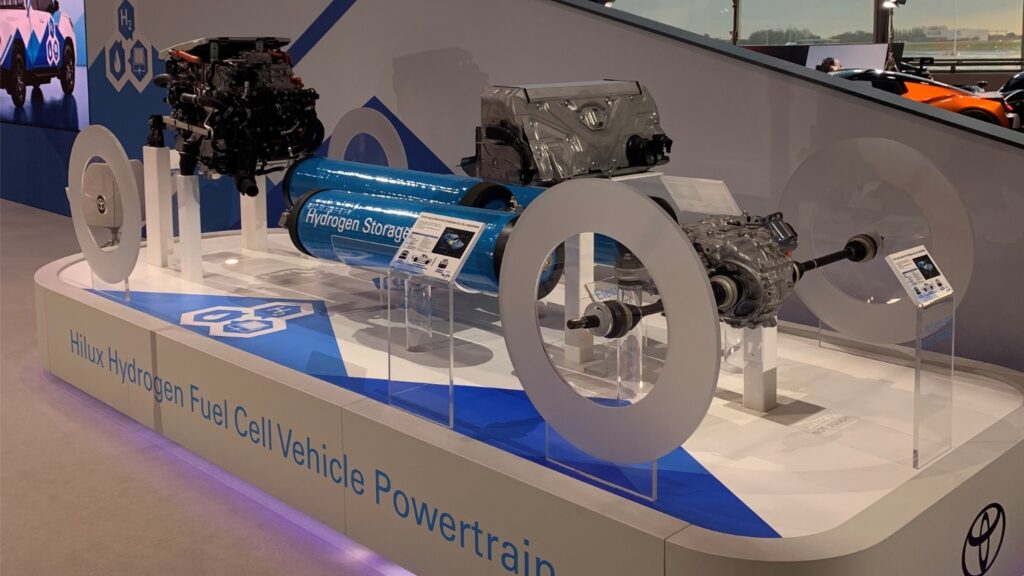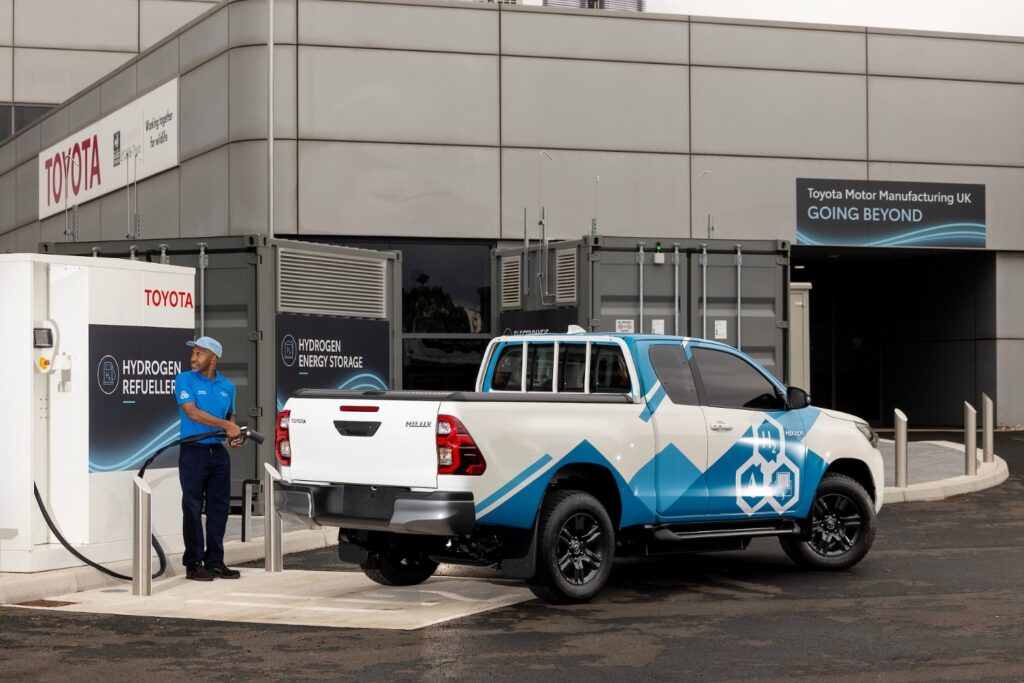Toyota continues to invest in a multi-energy plan in order to achieve the goal of having a range exclusively composed of zero-emission vehicles by 2035 and achieving complete carbon neutrality by 2040.
In this sense, the Japanese brand is committed to developing not only conventional and plug-in hybrid models, but also battery electric and hydrogen fuel cell vehicles. To do this, Toyota announced that it is working on the new generation of fuel cells, which will be available on the market in 2026, and that it will open a factory in Europe that will be responsible for producing an increasing number of fuel cell systems and supporting a growing number of commercial partnerships, in line with the company’s strategy to achieve carbon neutrality in Europe by 2040, ten years before Toyota’s global target.

Toyota expects the European market to be one of the world’s largest in terms of hydrogen fuel cells by 2030, with a constant acceleration of different mobility and energy generation applications.
With the implementation of a fuel cell production unit in Europe, the number of models with this technology will certainly increase, and among the next investments of the Japanese brand may be the production version of the Hilux FCEV Prototype – the first zero-emission hydrogen-powered pickup truck.
Produced by a consortium led by Toyota in the United Kingdom, the prototype demonstrates how a fuel cell can be incorporated into a pickup truck.


Toyota has also been integrating its fuel cell technology into Heavy Duty vehicles and other applications for several years now, and more recently entered the strategic truck market in Europe with hydrogen-powered trucks from French manufacturer Hyliko and the VDL Groep, based in the Netherlands.
It is already known that Toyota will use the hydrogen-powered VDL trucks to decarbonize its own logistics operations. The company is also expanding its partnership with Corvus in Norway for future maritime applications, such as ships and boats. In addition, the French clean mobility company GCK will use Toyota’s fuel cell modules to convert diesel buses into zero-emission hydrogen vehicles.

“Europe is demonstrating long-term confidence in hydrogen, and so are we. We will continue to develop passenger cars and other light vehicles with fuel cells, while expanding our focus to heavy-duty transportation to support the expansion of viable hydrogen infrastructure. Our goal is to further develop and learn through tests carried out in our own network and with partners who share our approach.”, emphasized Thiebault Paquet, Vice President of Toyota Motor Europe and Director of Fuel Cell Activities.












